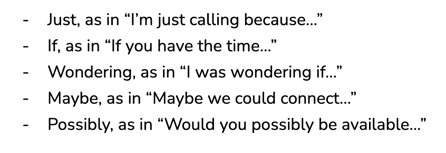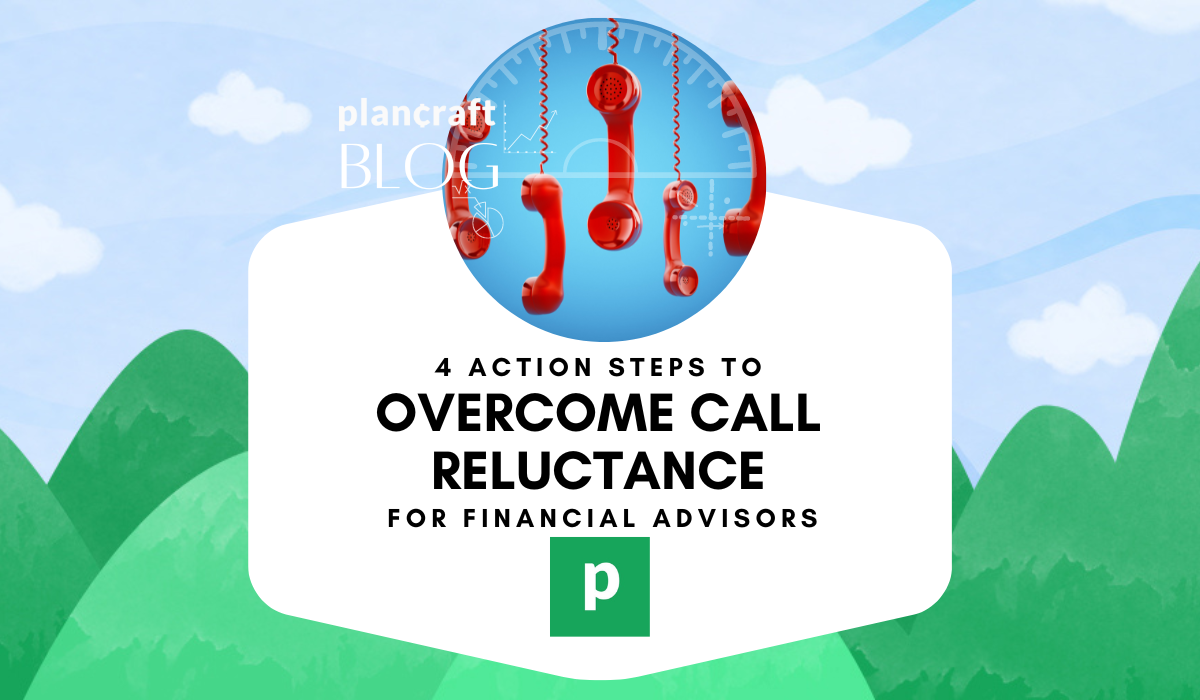Ever since the advent of the Blackberry in the 90s, people have been doing more talking with their thumbs than with their tongues. If you look at your own phone’s history, it’s likely you’ve sent dozens if not hundreds of texts in the past week. But how many phone calls have you made? Statistically, the answer is “not nearly as many.”
Because of this shift from oral to text-based communication, when people answer their phones, they do so with suspicion. “You have just a few seconds to help them feel less skeptical…or they’re going to end the conversation with you very quickly,” says Mary Jane Copps, a.k.a “The Phone Lady,” who trains financial advisors and life-licensed insurance agents who connect with local Planswell households over the phone.
What’s more, the number of phone-based scams that exist today doesn’t make anyone friendlier to people who call them out of the blue.
The result of all of this is that it can be much more challenging to even get somebody to pick up their phone, let alone engage in a conversation long enough for you to sell them something. Which, of course, means that it’s rather easy to get discouraged by what might be a fairly consistent string of hang-ups.
When someone doesn’t pick up the phone, it doesn’t mean they aren’t interested.
As noted above, phone calls are rarely somebody’s primary method of communication these days. Texting, email, teleconferencing, and social media have all taken up communication space in people's’ lives.
So, if you reach out to someone and they don’t answer, it doesn’t automatically mean they’re not going to be interested in what you have to say. They might just be busy.
The solution here, Copps says, is that “we have to always approach people in multiple ways. That also proves…we’re professional,” she says. “Someone who wants to scam us is unlikely calling us, emailing us, and asking to connect on Linkedin.”
Copps’ career as a sales entrepreneur started in 1987, before these “new” methods of communication even existed. Although communication methods have evolved and expanded, the science behind sales messaging really hasn’t.
You have to believe that your sales are a service.
When I asked The Phone Lady how she dealt — or advised people to deal — with the frustration that must come from getting hung up on so often, she said something rather interesting:
“It was 100% my responsibility to contact the people who could benefit from what I was doing, and if I didn’t do that, I was actually cheating them out of making the best decision for themselves.”
Sure, there’s no way that every person you call is going to say yes, but you have to believe that the services you offer matter and are important. If you don’t call someone, it’s possible that they will seek help elsewhere, but “if your information isn’t on the table,” Copps says, “you haven’t given them the privilege of knowing all their options.”
“To me,” Copps admits, “it’s almost unethical in a way to not pick up the phone and see if you can be of help.”
If you truly believe what you have to offer is of value, your persistence in trying to reach potential clients isn’t bothersome, it’s actually kind.
Good conversations are essential for making sales.
Just getting someone to pick up the phone, however, doesn’t at all guarantee that you’re going to be able to close a sale. This is where great conversations come in.
“Everything that I teach,” Copps says, “is about…helping people create great conversations.” Given the advent of text-based communication, she has noticed that communication skills are disappearing, and she is passionate about turning that around for those who want to.
If your business depends on making sales over the phone, you definitely want to work on these skills.
“You can’t build relationships via text on a screen,” Copps says. All you can do is “exchange information,” and, potentially, miscommunicate wildly. Customers need to trust you, and you’re going to need to have real, authentic conversations with them in order to make that happen.
What’s the secret to being able to do this? You have to put the intent behind your call away, and “just be you and be really interested in the other person.” Empathy, compassion, excellent listening skills, and the ability to think on your feet are all crucial to being able to do this effectively.
At the end of the day, if we can have “great conversations, [we] can be of service… [and] when we are of service, the sales happen.” You won’t even need a closing technique.
4 Tricks to Try Immediately to Improve Your Phone Sales Skills, According to The Phone Lady
1. To make a sale, you must earn trust.
As discussed above, the world is full of nefarious phone-scammers who are clogging up peoples’ voicemails with schemes to steal their money or their identities. Of course people are wary of unknown phone callers.
You’ll need to convince the people you’re calling that you care about something other than their business.
The best way to do this is to leave aside the fact you’re calling them to earn their business, and focus instead on having a genuine, authentic conversation with them. If you can do that, you will build positive relationships with them and earn their trust (and, consequently, their business).
2. The keys to earning trust are empathy, curiosity, and vulnerability.
Empathy:
People get weirded out by this word because they think it has to do with touchy-feely feelings and they aren’t comfortable dealing with that. It doesn’t, really.
The Phone Lady says you should think of empathy as a logical process: you’re listening actively to what the person is saying and noticing everything you can about their situation so that you can try and understand where they’re coming from.
This will allow you to engage them authentically in conversation and, ultimately, draw connections between what you know they need and what you can provide.
Curiosity:
Curiosity and nosiness are not the same thing, Copps says. The idea here is to ask genuine, thoughtful, open-ended questions in response to what you’re hearing another person say.
One practice that’s helpful in developing authentic curiosity is to avoid making assumptions about what you think you already know. If you think you already know something, you won’t be asking any questions about it.
Instead, you want to develop real understanding by asking questions. It’s also best practice to make sure you’re listening more than speaking.
PRO TIP: Being curious takes time. Make sure you’re padding your meeting times so that you have enough time to be genuinely curious and learn all you can. And, if new questions arise as you’re reviewing your conversation, follow up with them.
Vulnerability:
People tend to avoid vulnerability for all of the reasons they shy away from empathy and more. It may even seem inappropriate to be vulnerable in a professional setting, and, sure: we definitely don’t want to be over sharing with potential clients.
However, being vulnerable doesn’t necessarily mean disclosing childhood trauma or secret love interests. Simply sharing some of your authentic personality goes a long way towards building trust.
Offering personal details, sharing relevant stories from your own experience, discussing successes (or embarrassments), and being authentically humorous or passionate are not simply good ideas, but actually necessary to developing authentic, trusting relationships with potential clients.
You should avoid, however, certain topics: discussing politics or gossiping are not in your best interest.
3. Listen actively and track nuance
Paying attention to the way another person is reacting to your conversation is essential for gauging how you should move forward. Nuanced shifts in tone of voice, rate of speech, or duration of pauses in the conversation can clue you into how the other person is feeling, and inform you of how you should adjust your own conversational tactics in order to avoid driving them away.
4. Avoid overly polite phrases
When The Phone Lady was just getting started, she was having trouble closing sales. “I was having great conversations,” she recalls, “but not selling anything.”
In order to get to the bottom of the issue, she started recording her calls. Once she did, she recognized the problem almost immediately.
She had been starting all of her calls with a phrase along the lines of “I’m just calling because…” The issue, she realized, was the word “just;” it implied that she was only calling because she didn’t have anything better to do, or that her call had no value whatsoever. “Once I dropped that word, we were making money,” Copps says.
If you use overly polite phrases, it can insinuate what you have to say is simply unimportant. Here are some phrases you’ll want to make sure to avoid in your conversations: 
If you’re interested in learning more, consider opening a Planswell account (it’s free!). The Phone Lady joins us live every month to work with those serving Planswell households, and her sessions are available on demand to account holders in our robust AdvisorHQ.






.png)
.png)

